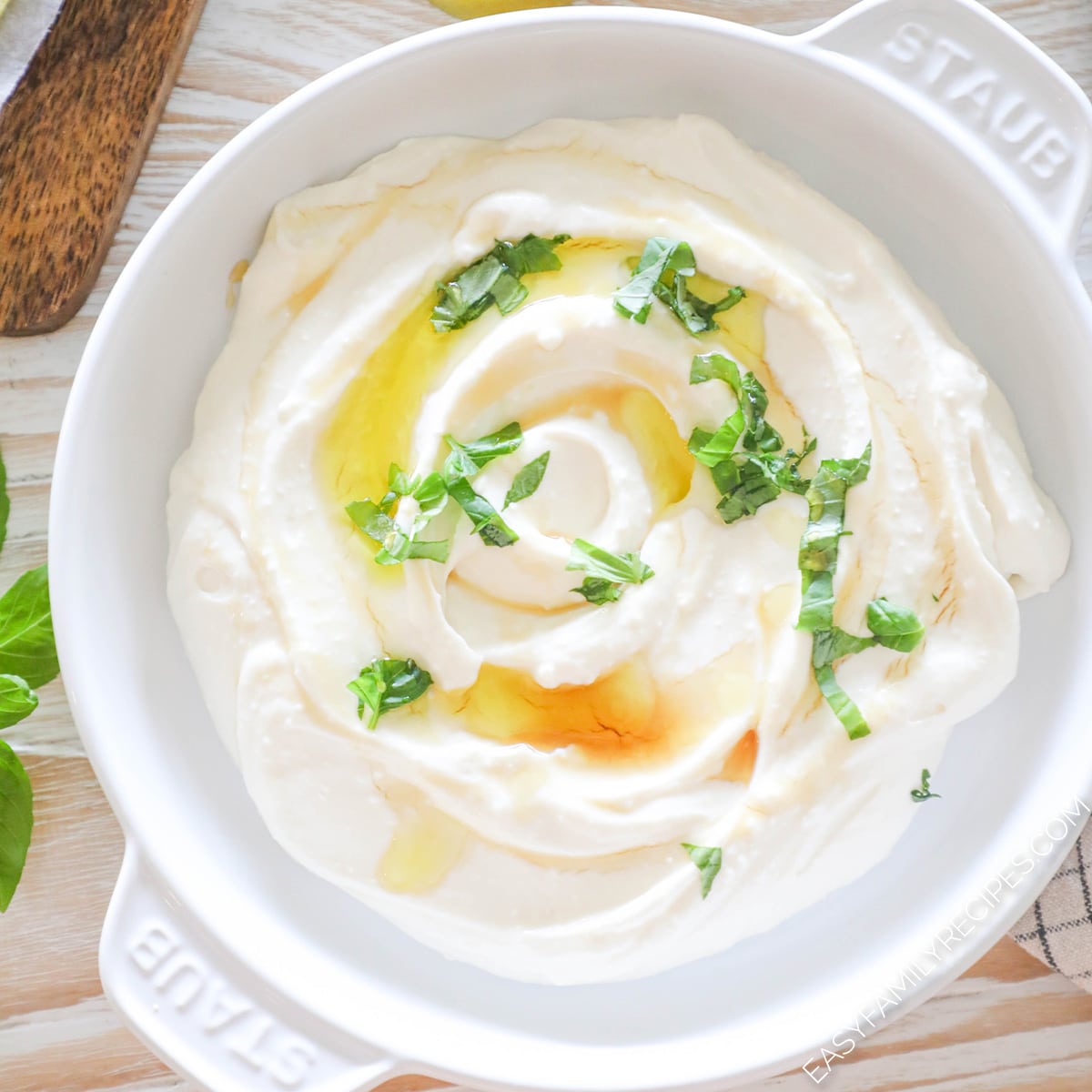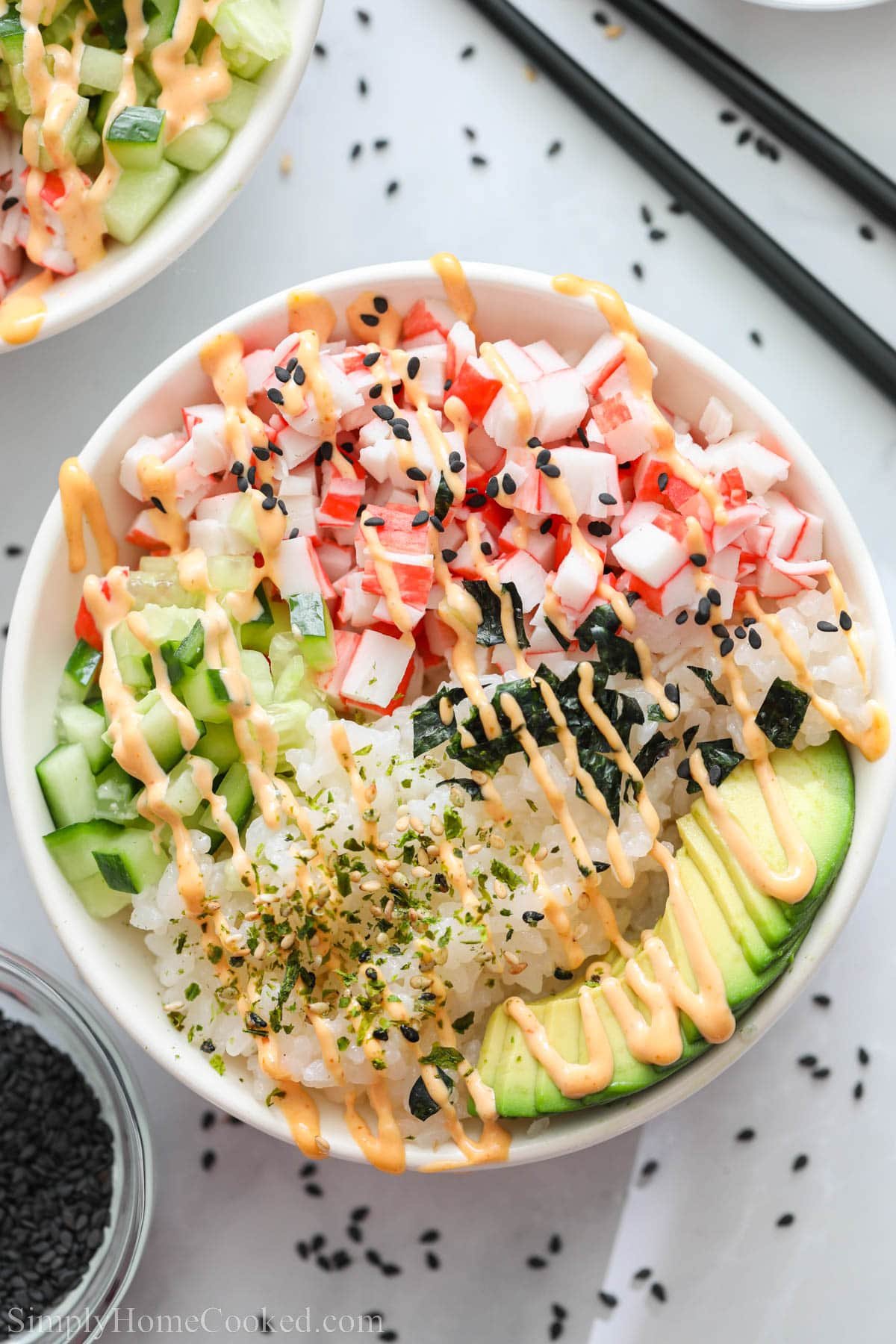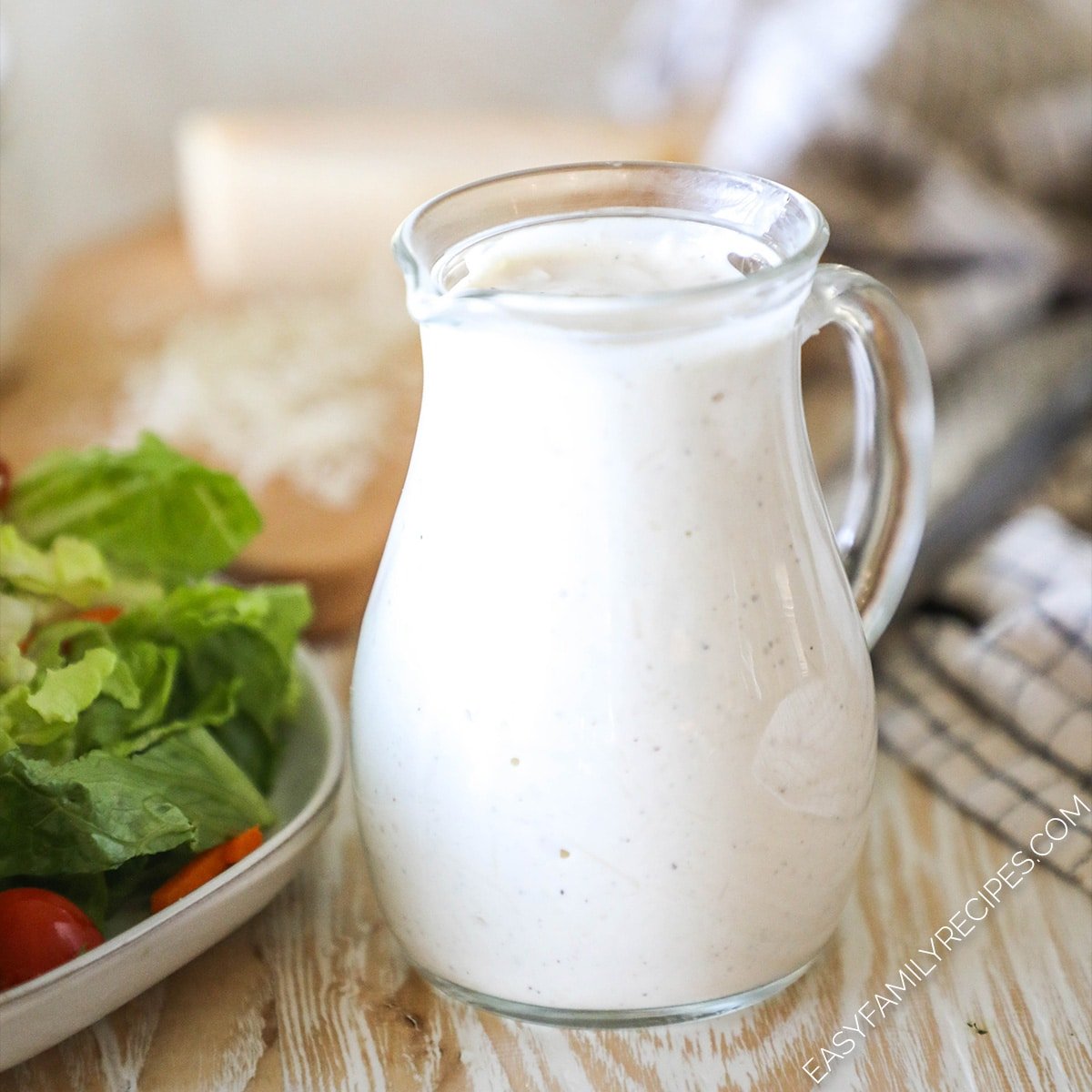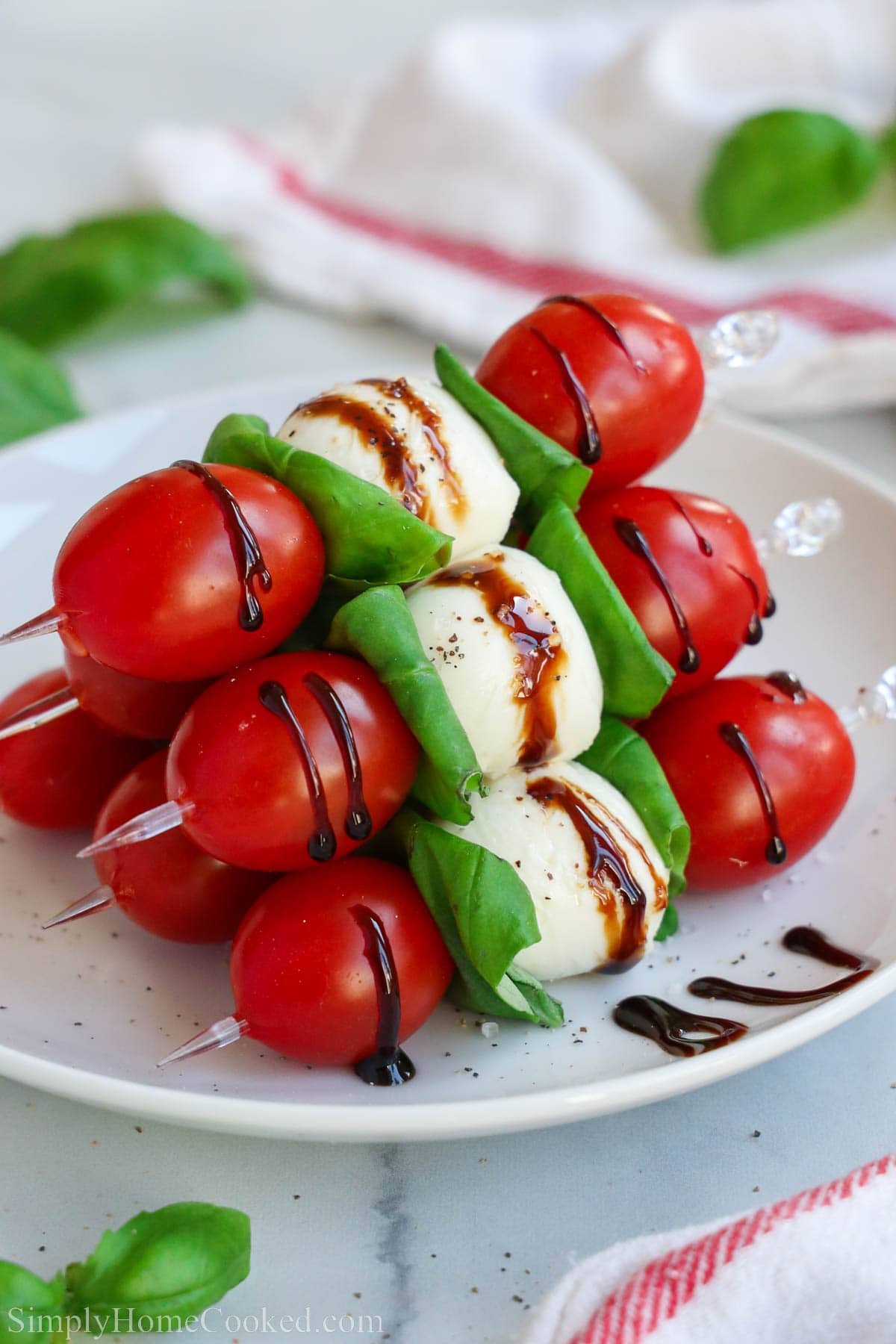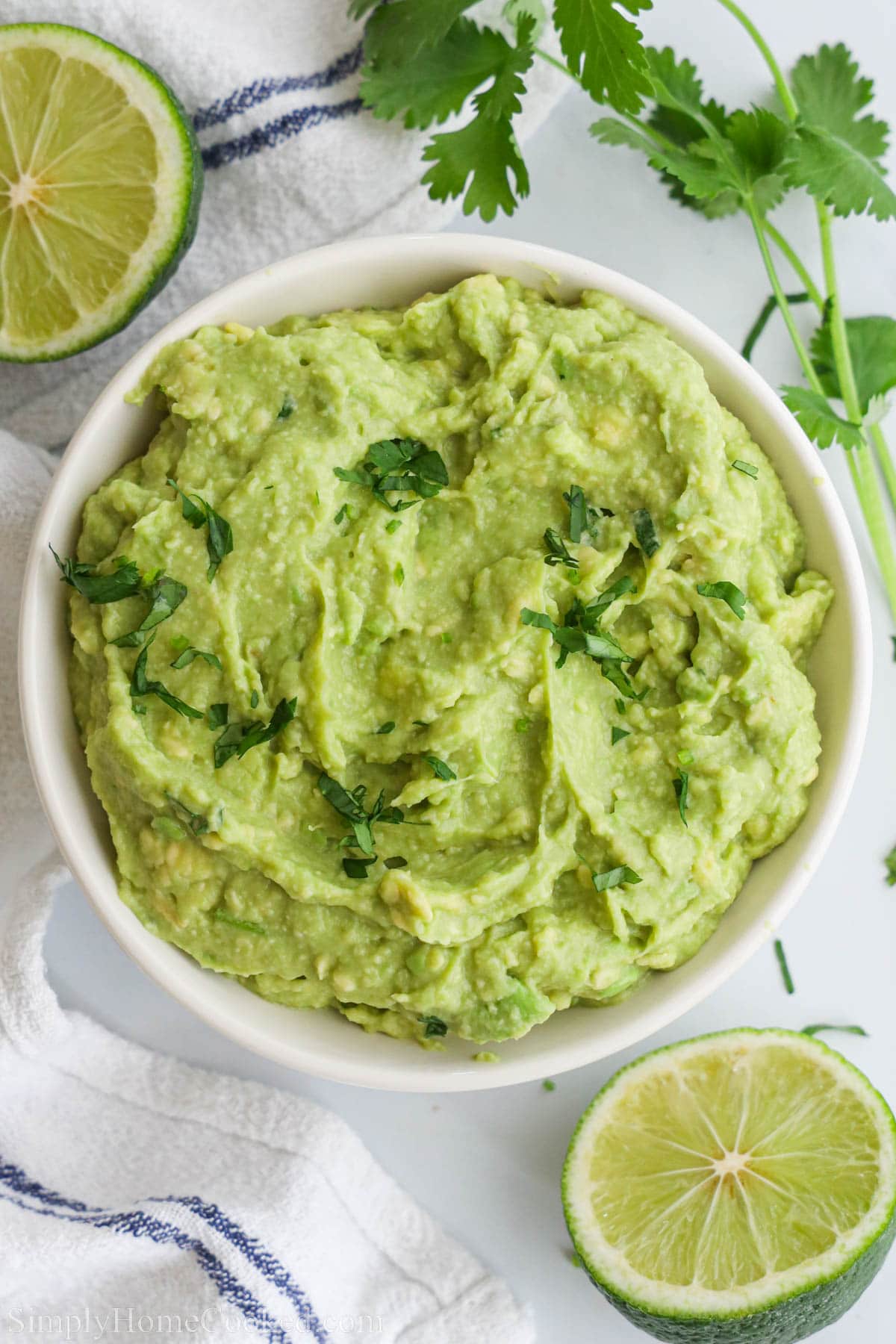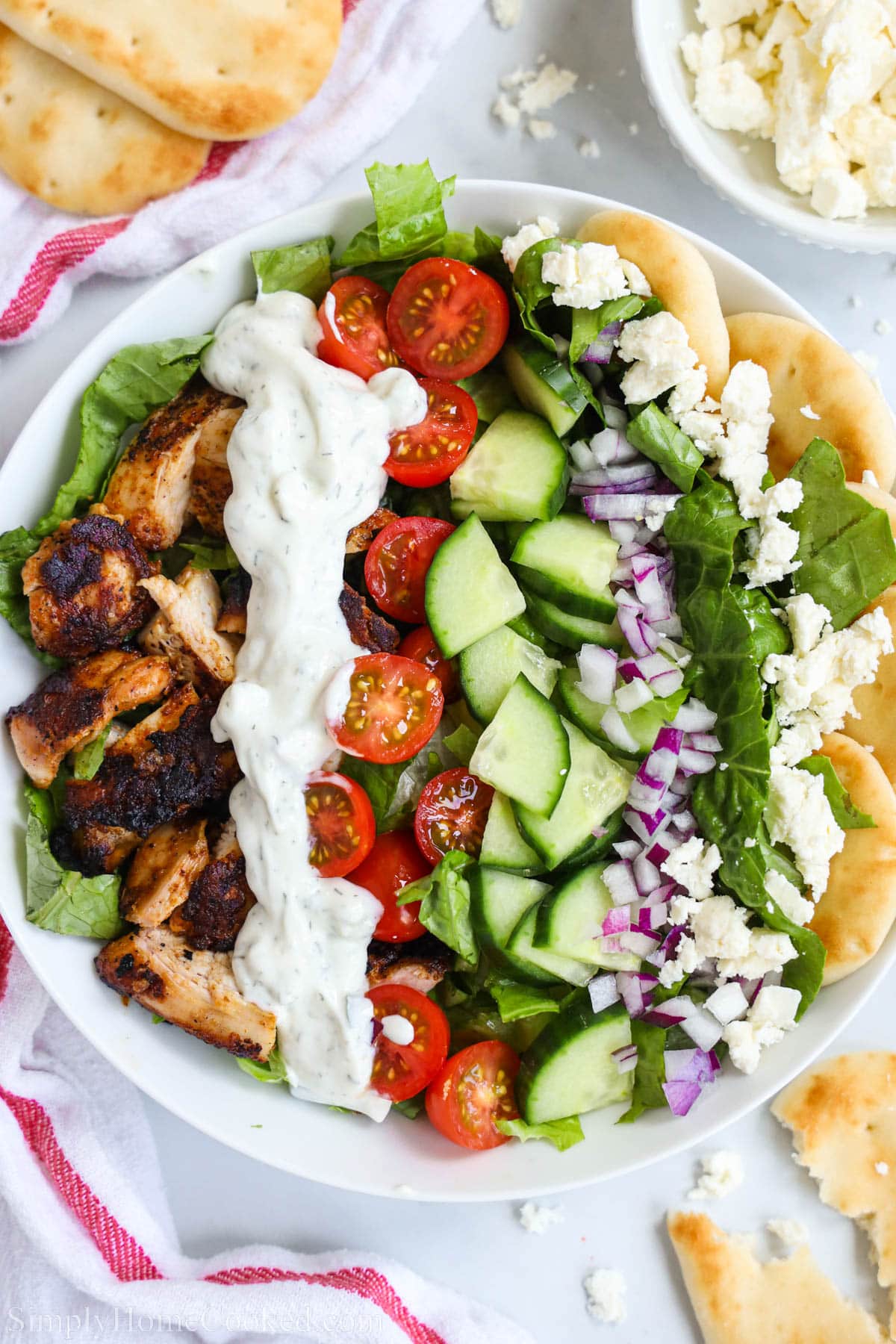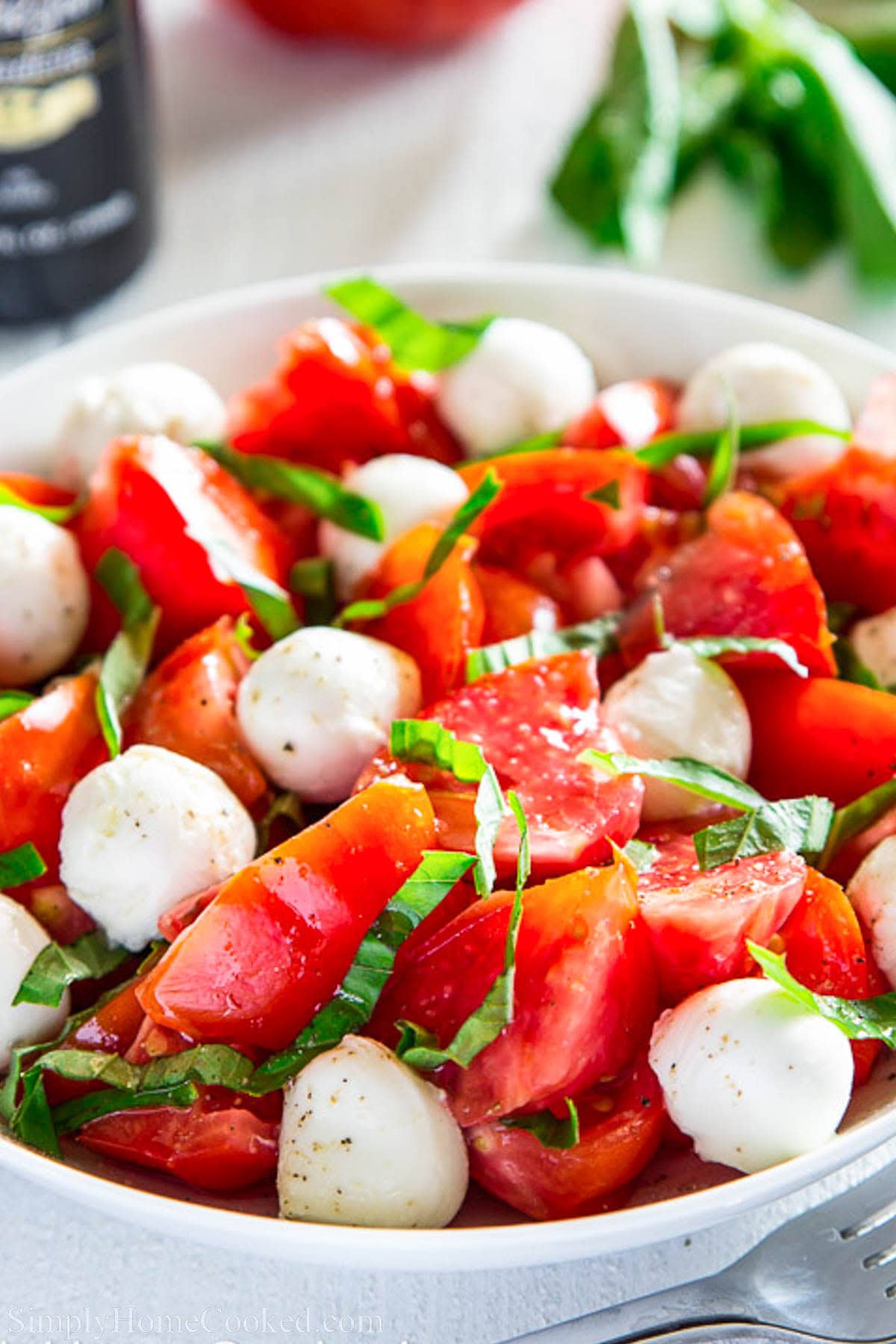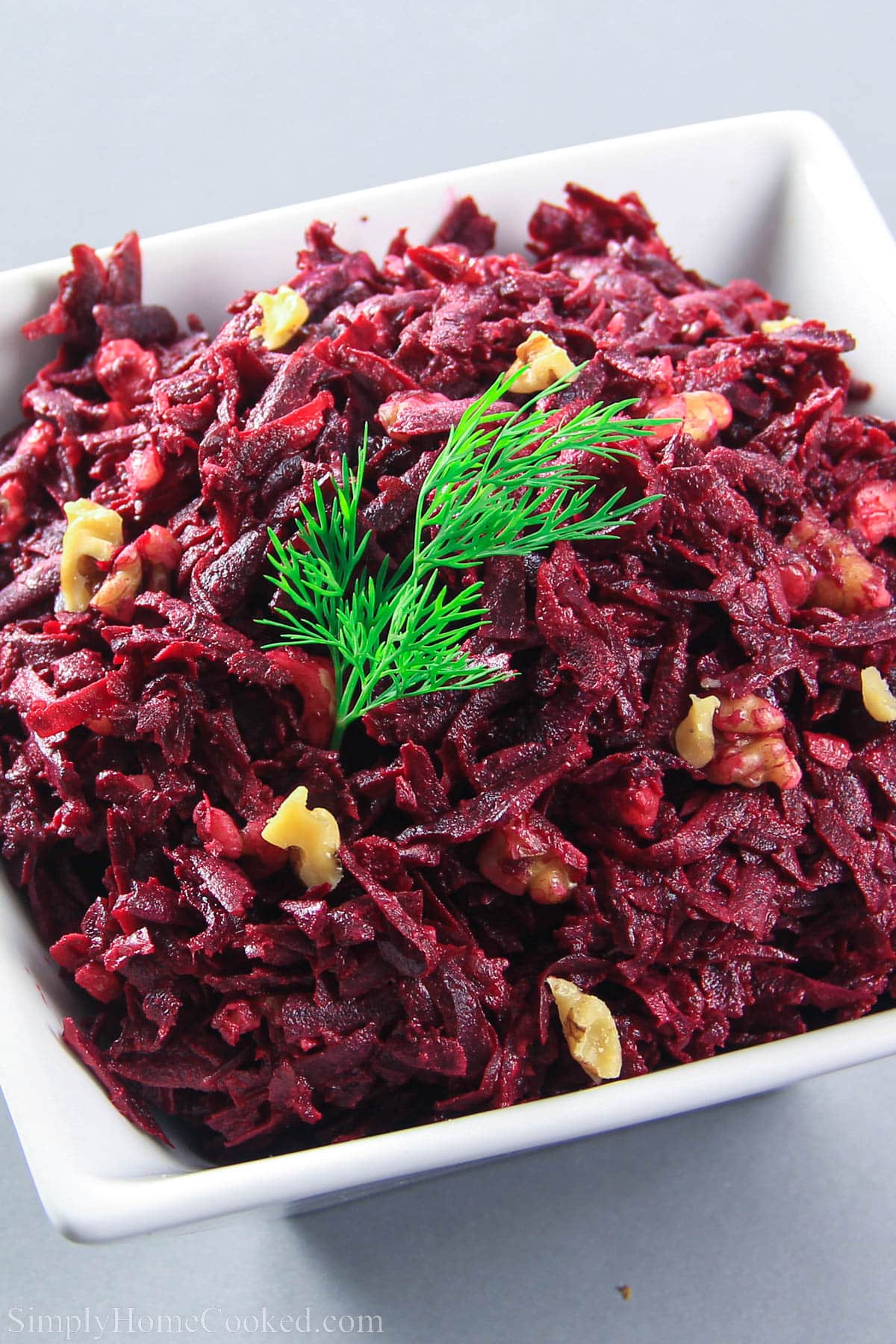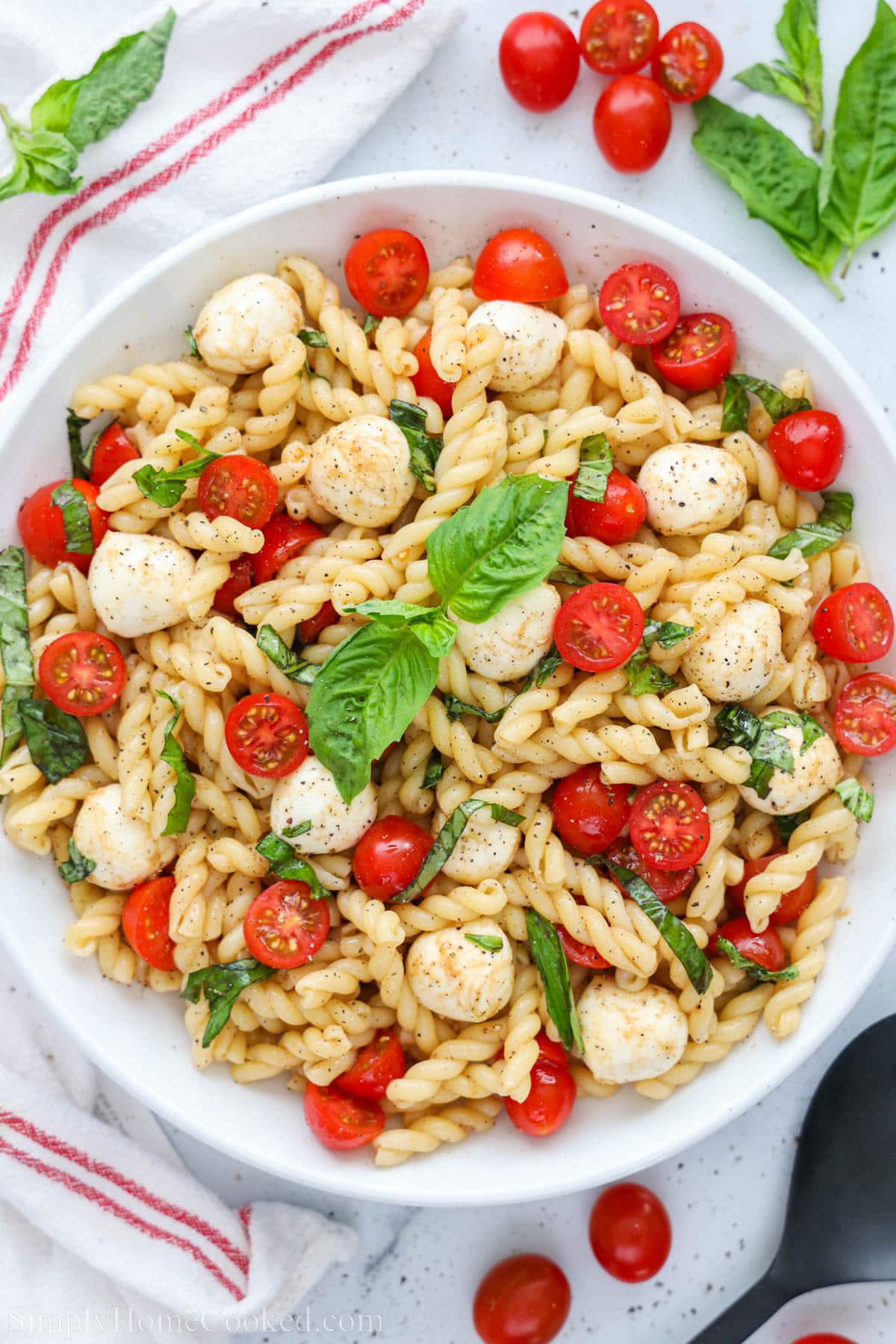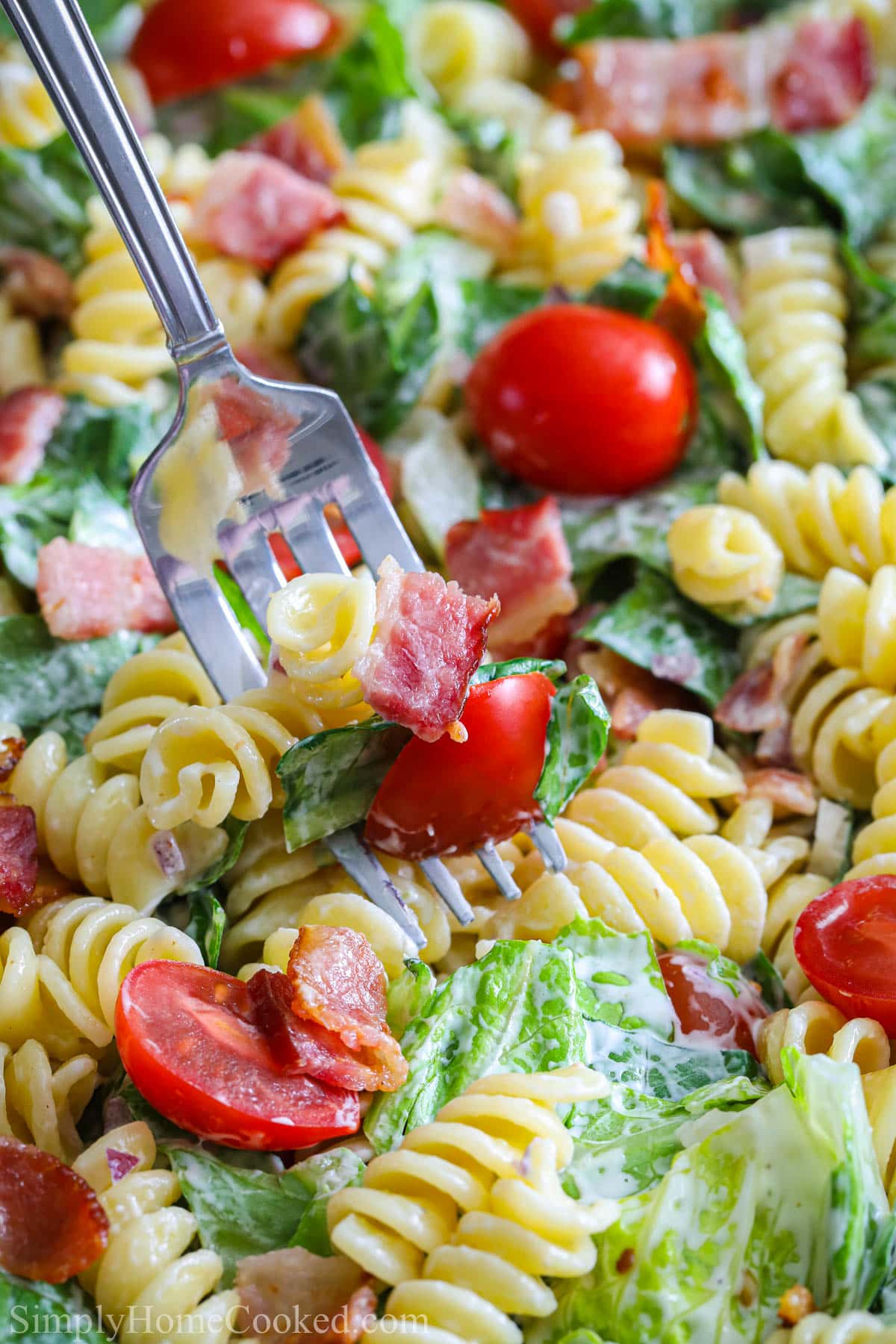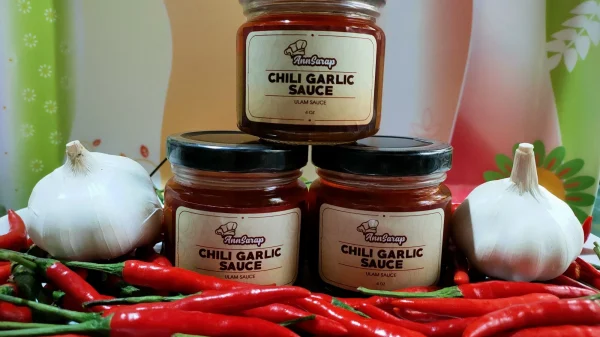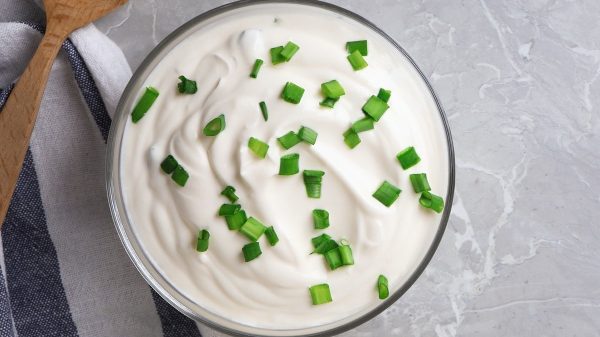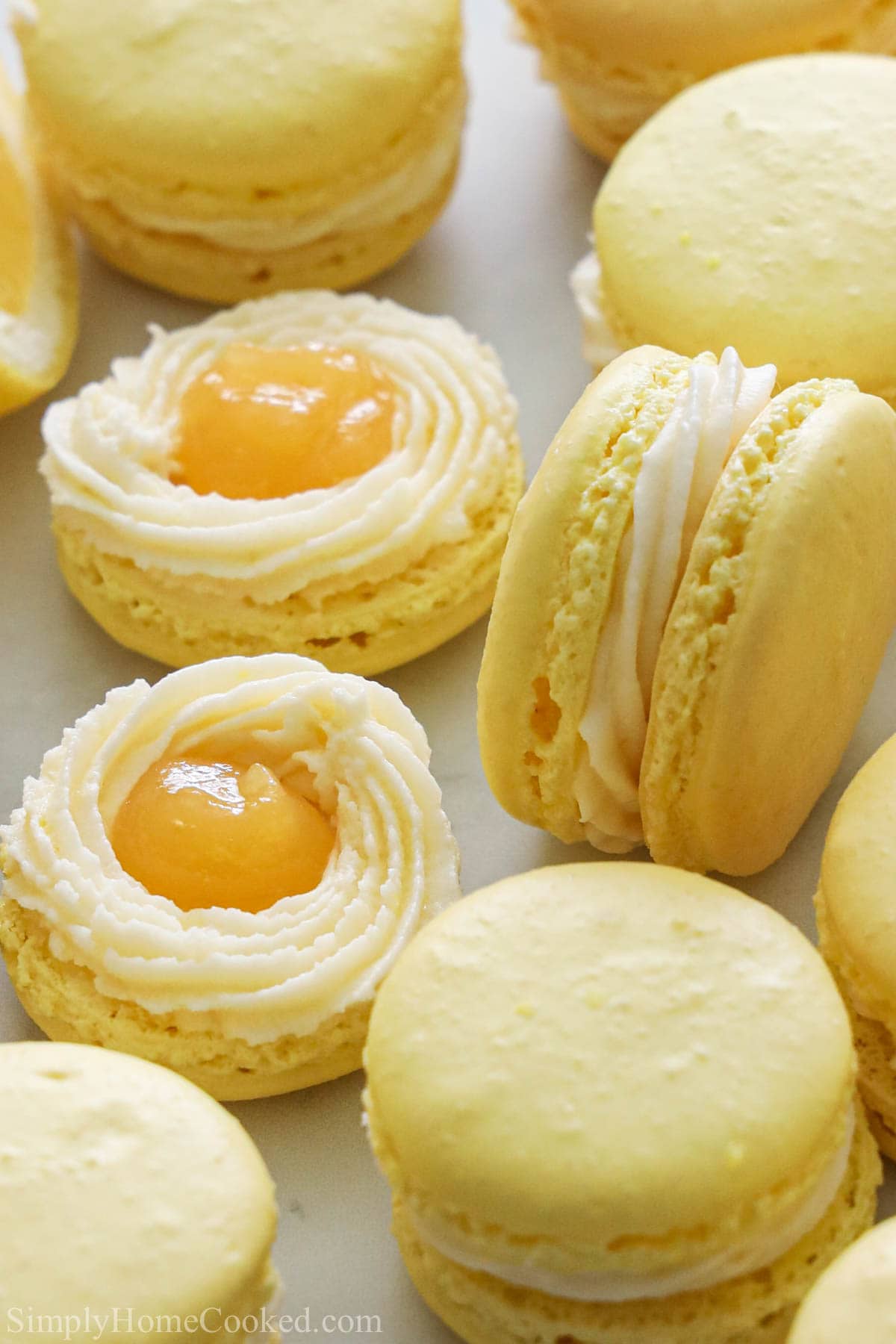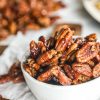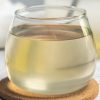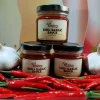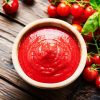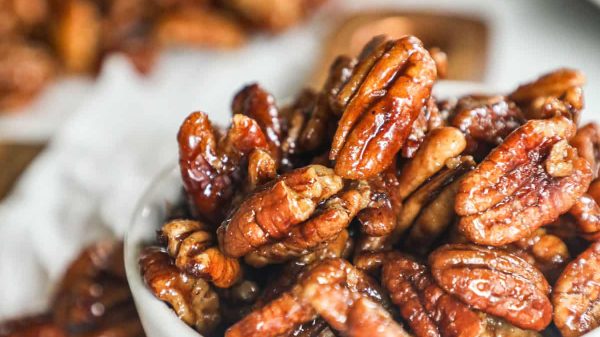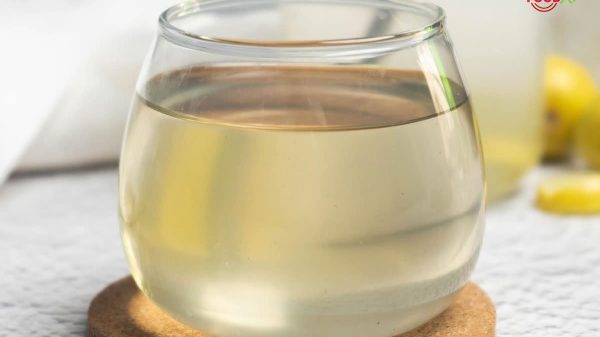These Lemon Macarons are light, airy, and bursting with lemon flavor. Filled with a luscious lemon curd and buttercream, these delightful pastries are simpler to create than you might expect.
Recipe Details
I am truly fond of this recipe for delicious Lemon Macarons. Their vibrant and cheerful flavor is perfect for summertime. Although this elegant dessert can be slightly challenging, I’ve compiled numerous tips to ensure you present outstanding macarons to your loved ones.
- TASTE: These macarons have the perfect level of sweetness, highlighted by the zesty flavor of lemon zest, lemon curd, and lemon extract.
- TEXTURE: They feature a light and airy construction with a chewy center and a slightly crisp exterior.
- TIME: While macarons can be prepared relatively quickly, allow for 30 minutes to an hour for the “skin” to form before baking.
- EASE: Although crafting these cookies requires some effort, the final product is truly impressive.
What You’ll Need
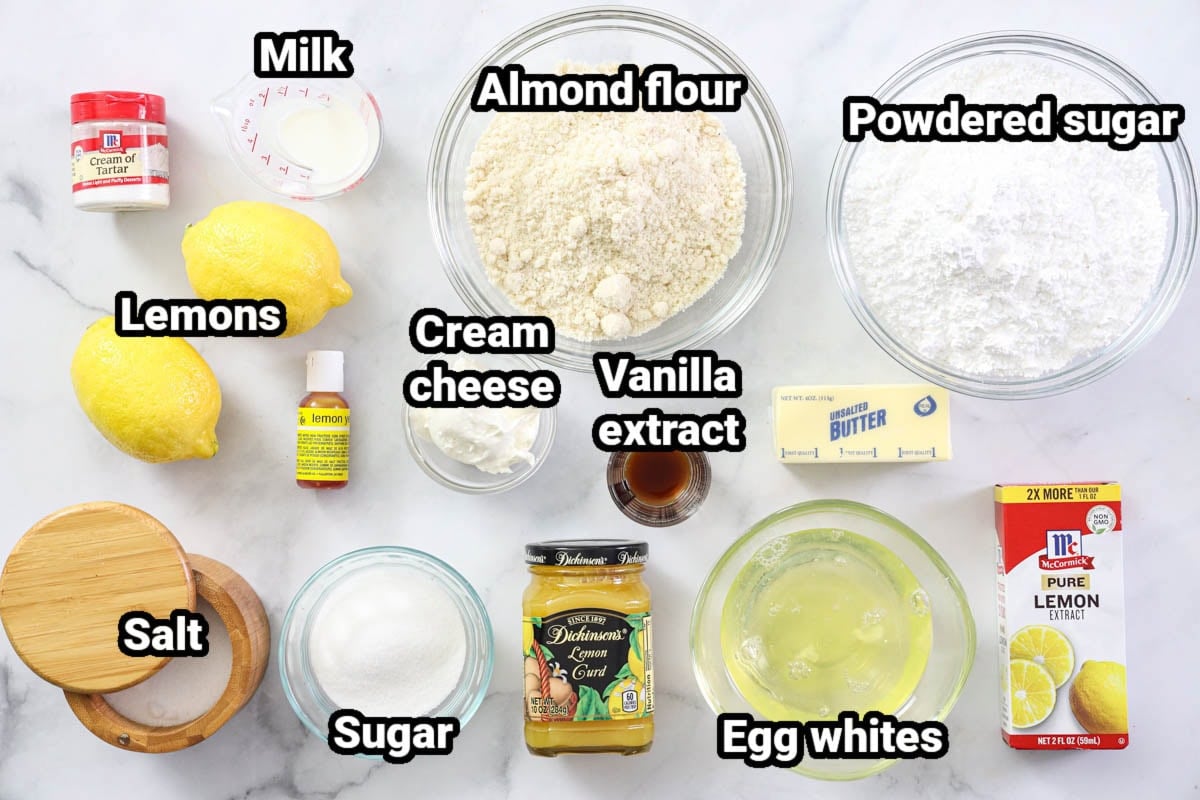
Ingredient Notes
- Blanched almond flour – This finer flour contributes to a smoother batter, resulting in a delicate, shiny shell.
- Powdered sugar – This fine sugar helps the macaron shell batter remain smooth, unlike granulated white sugar. It also adds sweetness to the buttercream filling.
- Egg whites – Use room temperature egg whites to create a meringue with stiff peaks.
- Cream of tartar – This ingredient’s acidity stabilizes the egg whites, making the meringue more robust.
- Vanilla extract and Lemon extract – They provide a delightful sweet and citrusy flavor to the macarons.
- Yellow gel food coloring – This ingredient imparts a vibrant hue to the macarons; liquid food coloring can also be used.
- Granulated sugar – This ingredient sweetens the meringue.
- Butter – Use softened, unsalted butter for easier mixing and to avoid adding extra salt.
- Cream cheese – Soften it for easier incorporation into the buttercream, contributing a tangy flavor.
- Lemon zest – This adds a powerful lemon essence to the buttercream.
- Lemon curd – Both homemade and store-bought options are suitable.
Add-ins and Substitutions
- Substitute other fruit flavors – Experiment by using strawberry, raspberry, orange, or lime flavors. Use fruit juice, zest, jam, or extract to incorporate these flavors.
- Add nuts – Consider adding coconut, pistachio, hazelnut, or almonds.
- Make them chocolatey – Use dark or white chocolate, or fill them with chocolate ganache.
- Try other flavors – Consider creating variations with coffee, lavender, caramel, red velvet, and other enticing flavors.
How to Make Lemon Macarons
- Line the baking sheets. Begin by lining two large baking sheets with parchment paper and set them aside.
- Mix the wet ingredients. In a stand mixer bowl, whisk the room temperature egg whites on high speed using the whisk attachment. Then, add the salt, cream of tartar, vanilla extract, and lemon extract.
- Add the sugar and food coloring. Once the egg whites become foamy, gradually add the granulated sugar and yellow food coloring. Beat for another 4-5 minutes, or until stiff peaks form.
Pro Tip: If you forget to bring your eggs to room temperature, simply submerge them in hot water for about 5 minutes, and they will be ready to use!
### Instructions for Making Lemon Macarons
1. **Sift the Dry Ingredients**: In a separate bowl, sift together the almond flour and powdered sugar, mixing well. This step is crucial for achieving a smooth macaron texture.
2. **Fold in Egg Whites**: In a large mixing bowl, add the egg whites along with a third of the flour mixture. Using a large rubber spatula, fold the dry ingredients into the wet ones. Once combined, add another third of the flour mixture and fold again. Repeat this process with the remaining flour until the mix resembles brownie batter. Take care not to overmix.
3. **Prepare the Piping Bag**: Insert a round piping tip into a pastry bag and fill it with the macaron batter. To prevent a mess, twist the bottom of the bag to keep it securely closed.
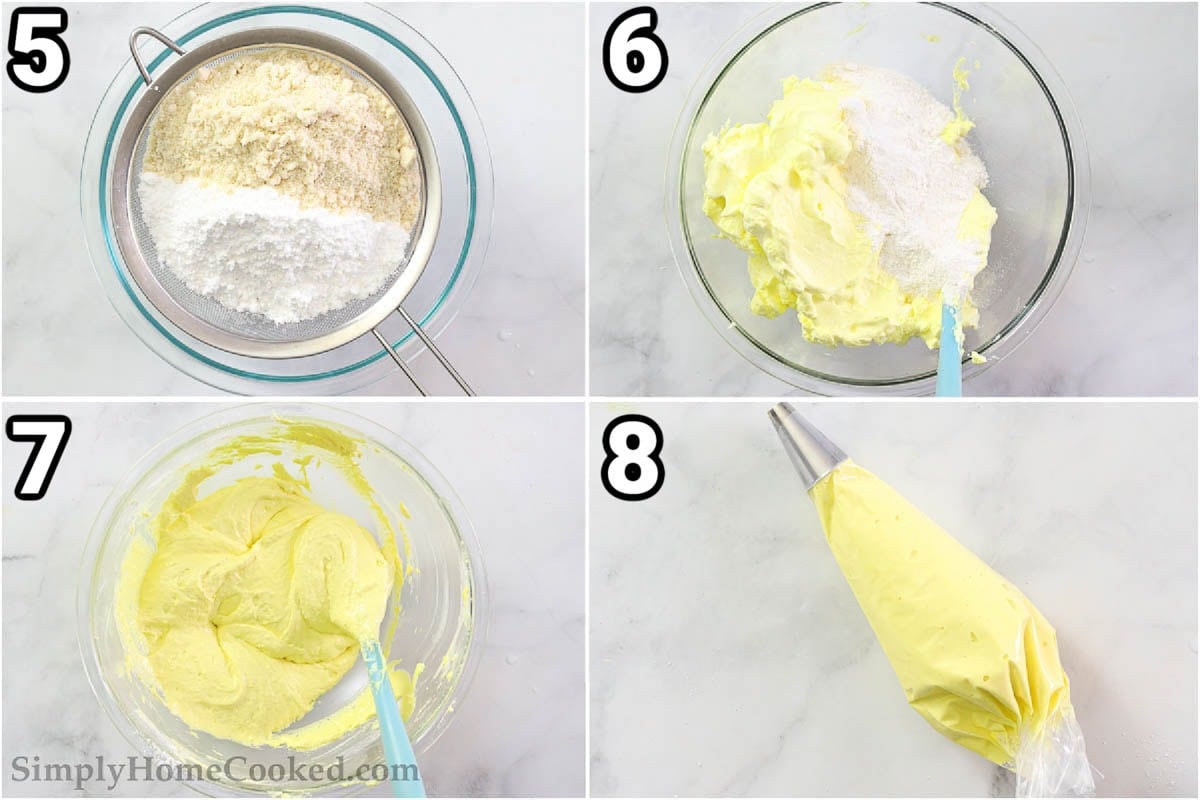
4. **Pipe the Mixture**: Pipe 1-inch rounds of batter onto prepared baking sheets, ensuring to leave 1-2 inches between each, as they will slightly spread.
5. **Eliminate Air Bubbles**: Firmly tap the cookie sheets on the counter several times to release any trapped air bubbles. Aim to hit them about 10 times for effectiveness.
6. **Drying Time**: Allow the piped batter to sit at room temperature for 30-50 minutes until the surfaces feel dry to the touch. Note that the drying duration may vary based on local humidity levels.
7. **Bake**: Preheat the oven to 300°F, ensuring the setting is conventional without a fan. Bake one tray at a time for 16-18 minutes. Avoid underbaking, as this may cause them to stick to the parchment paper. For the second batch, keep an eye on them and consider reducing the baking time by a minute or two to prevent over-drying.the first tray of macarons often creates heat in the oven, the second tray may require a different baking time. Keep a close watch on them and adjust accordingly to ensure they bake perfectly.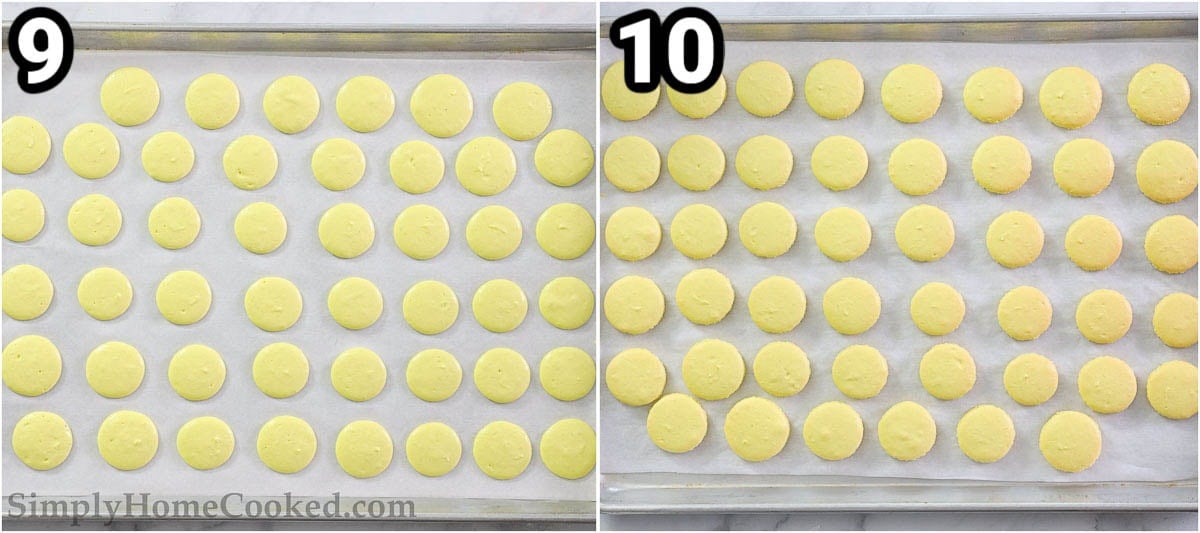
- Prepare the buttercream. Using an electric handheld mixer, blend the softened butter, cream cheese, powdered sugar, milk, vanilla extract, and lemon zest. Mix on medium speed until the mixture is light and fluffy.
- Incorporate the filling. Fit a star piping tip (I utilized a Wilton 21) into a pastry bag, and fill it with the lemon buttercream. Turn half of the macaron shells upside down and pipe a ring of lemon buttercream around the edges. Fill the center with your preferred lemon curd, then top with another macaron shell to finish the process.
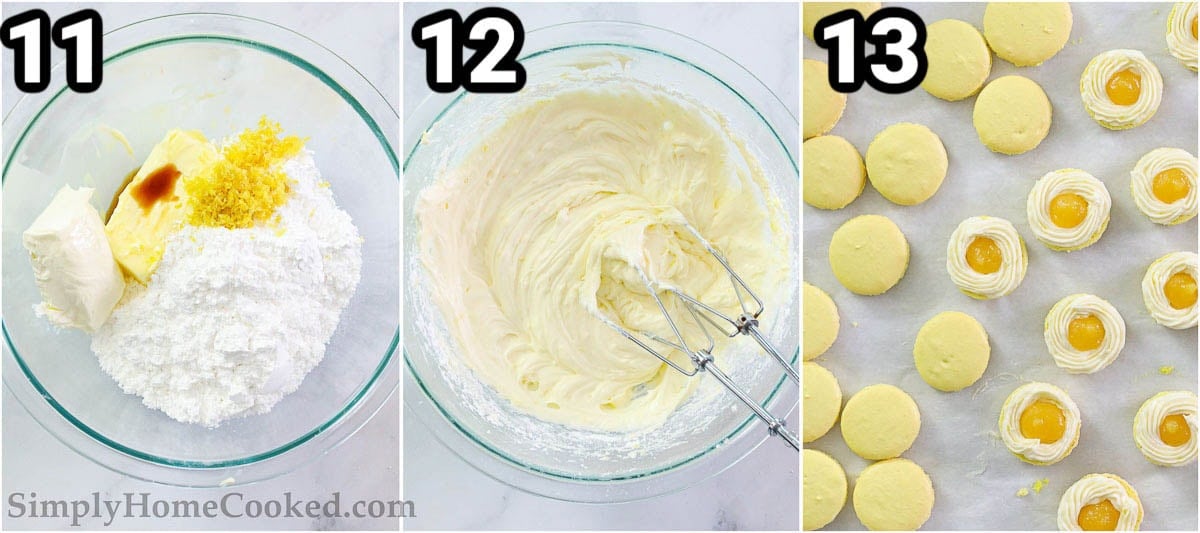
Recipe Tips
- Sift dry ingredients thoroughly. Properly sifting the almond flour is crucial for the right consistency of your macarons, allowing you to eliminate larger pieces. Alternatively, you can pulse the almond flour in a food processor to achieve a finer texture.
- Achieve the correct batter consistency. The batter should resemble brownie batter in thickness and be able to flow off a spatula. If you can create a figure 8 without breaking, the batter is ready—just be cautious not to overmix, which may introduce air pockets into the lemon macarons.
- Prevent a piping mess. Twisting the base of the pastry bag while filling it with lemon macaron batter can help keep it closed, preventing any batter from escaping and creating a mess.
- Eliminate air bubbles. To avoid air pockets in your macarons, firmly tap the baking sheets against the counter 8 to 10 times. This step will help ensure even rising as the macarons develop their characteristic feet.
- Consider your environment. If you reside in a humid area, your lemon macaron shells may take longer to dry than usual. Increase the drying time slightly on humid days to allow them to form an appropriate “skin” prior to baking.
- Use the conventional oven setting. When preheating your oven, set it to conventional mode to avoid the internal fan disrupting the delicate baking process of these cookies.
- Adjust cooking time for the subsequent tray. The first tray often generates heat inside the oven, which means the second tray may require a different baking time. Keep a watchful eye and modify the timing as necessary to ensure perfect baking.
the second tray will be exposed for a longer period and will dry further, leading to faster baking compared to the first tray. Adjust the baking time accordingly to prevent them from burning.
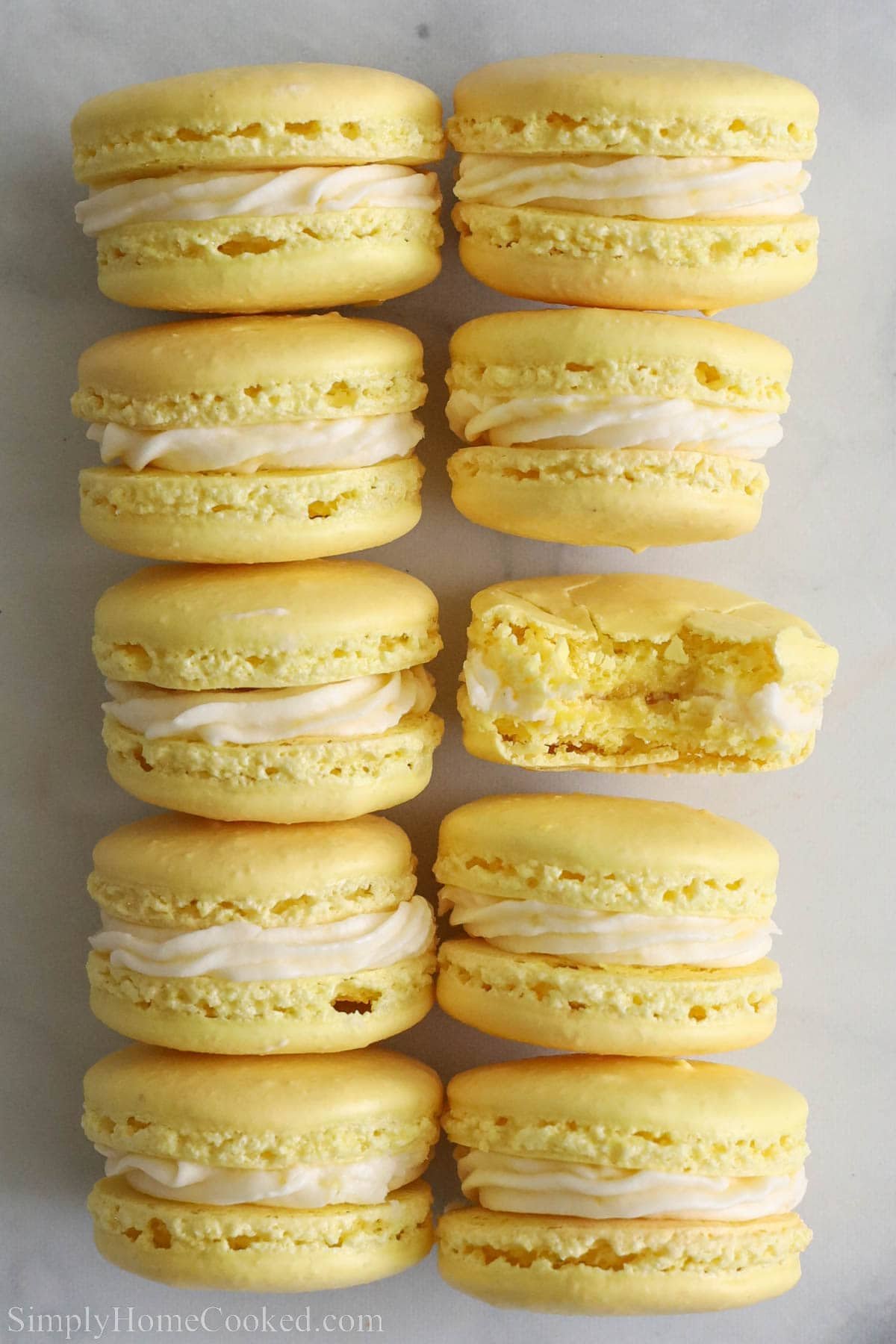

FAQs
Can you use lemon juice instead of cream of tartar in macarons?
Certainly, lemon juice can be used as a substitute for cream of tartar. Both ingredients provide acidity to the egg whites, stabilizing them and enhancing meringue strength. Use 1 tsp. of lemon juice instead of 1/2 tsp. of cream of tartar.
How do you know if your macarons are done?
Macarons are fully baked when they develop “feet” at the base, characterized by bubbly, ruffled edges. Additionally, the tops should appear stable and smooth, not shifting under light pressure.
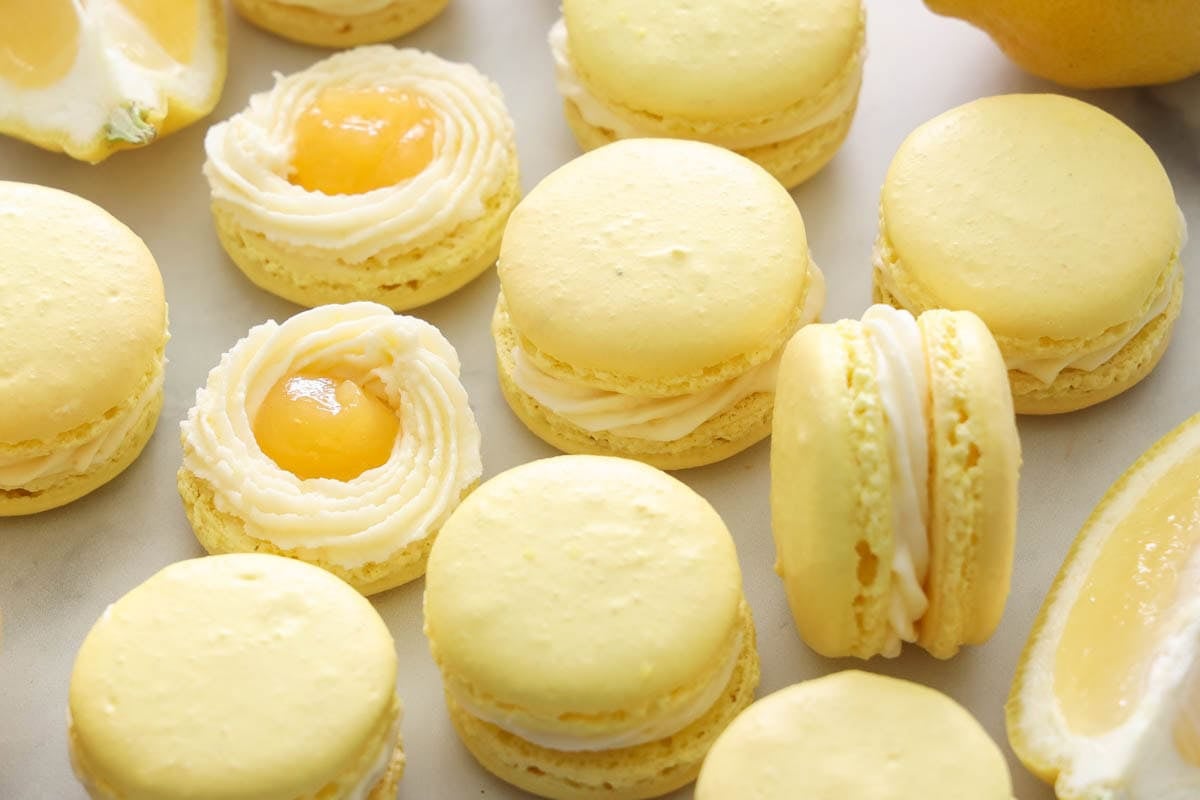

Serving Suggestions
These delightful homemade Lemon Macarons are chewy, sweet, and delightful. Pair them with a variety of cakes, cookies, citrusy treats, or your favorite beverages.
- Cakes: Complement these French macarons with slices of Honey Raspberry Cake, Easy Oreo Cheesecake (VIDEO), Berry Chantilly Cake, or Easy Napoleon Cake (VIDEO).
- Cookies: Enjoy them alongside Easy Cream Cheese Cookies, White Chocolate Macadamia Nut Cookies, Vanilla Macarons, and Almond Flour Chocolate Chip Cookies.
- Citrusy treats: Pair these lemon macarons with Lemon Raspberry Cupcakes, Lemon Pound Cake (VIDEO), or Cranberry Orange Bundt Cake.
- Beverages: Savor these macarons with Hot Chocolate, Iced Caramel Macchiato, Iced Matcha Latte, or Brown Sugar Boba.
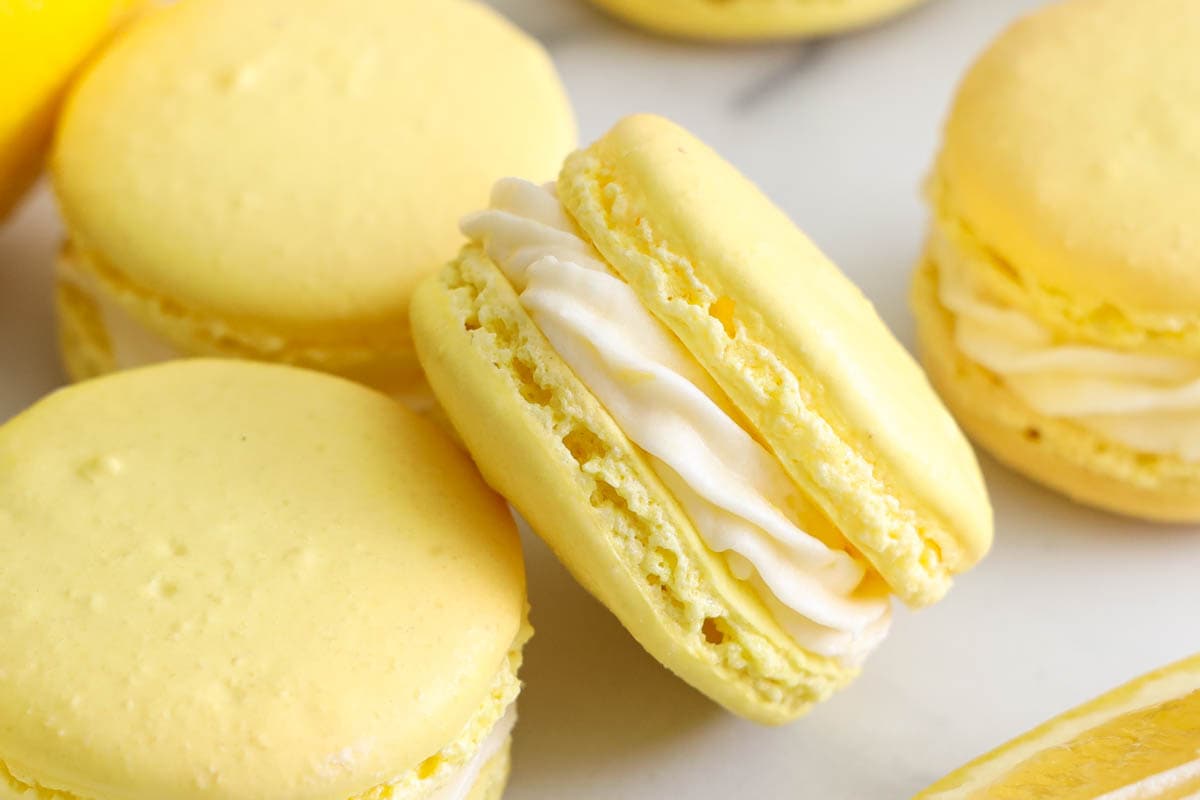
Prepare This Recipe Ahead of Time
Preparation in advance: The macaron shells can be prepared beforehand. They typically remain fresh for 4-6 days when stored in an airtight container at room temperature or in the refrigerator. You can also prepare the lemon curd and buttercream, keeping them refrigerated until it’s time to assemble the macarons.
Storage: To maintain freshness, lemon macarons should be kept in the refrigerator within a container, placing plastic wrap or parchment paper between layers to prevent sticking. They last about 2-4 days.
Freezing: If you choose to skip the lemon curd, these macarons can be frozen. Since lemon curd tends to become watery upon thawing, either freeze only the empty shells or use only buttercream. They can be stored in an airtight container in the freezer for up to 3 months.
Delicious Macaron Variants!
Complete Recipe Directions
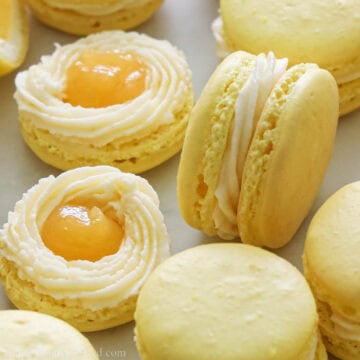
Lemon Macarons
These Lemon Macarons are airy, fluffy, and brimming with sweetness. Filled with luscious lemon curd and buttercream, they offer a bright, delicate treat.
Print
Pin
Rate
Course: Dessert
Cuisine: French
Diet: Gluten-Free
Preparation Time:
35 minutes
Cook Time: 18 minutes
Dry Time: 1 hour
Total Time: 1 hour 53 minutes
Servings: 32 macarons
Calories: 144kcal
Instructions
Prepare 2 baking sheets by lining them with parchment paper and set aside.
- In the bowl of a stand mixer, beat 4 egg whites at room temperature on high speed using the whisk attachment. Add a pinch of salt, 1/2 teaspoon of cream of tartar, 1 teaspoon of vanilla extract, and 1/2 teaspoon of lemon extract. Once the egg whites start to foam, gradually add 1/3 cup of granulated sugar, along with 1-2 drops of yellow food coloring. Continue whisking for an additional 4-5 minutes or until stiff peaks form.
- In a different bowl, sift 1 1/2 cups of blanched almond flour and 2 1/2 cups of powdered sugar together, mixing to combine. Sifting is important to eliminate larger almond flour pieces. For ultra-smooth macarons, consider pulsing the almond flour in a food processor to achieve a finer texture—a step that enhances their appearance.
In a large bowl, combine the whisked egg whites with 1/3 of the almond flour and powdered sugar mixture. With a large rubber spatula, gently fold the dry ingredients into the egg whites. Once there are no visible patches of almond flour, add another third of the almond mixture, folding again, and finally, incorporate the remaining third. Be cautious not to over-mix; the batter should resemble brownie batter. A helpful technique to check is to let the batter fall from the spatula—it should be able to form a figure eight.
- Insert a round piping tip, like Wilton 1A, into a pastry bag and fill it with the batter, twisting the bottom to prevent any leaks, which can make this step messy.
Pipe 1-inch dollops of the macaron batter onto the prepared baking sheets, ensuring a gap of 1-2 inches between each mound to allow for spreading.
To eliminate air bubbles, firmly bang the cookie sheets on the counter a few times—about 10 should suffice.
Allow the macarons to dry at room temperature for approximately 30-50 minutes, or until they feel non-sticky. The drying time may vary based on the day’s humidity; in more humid conditions, it may take longer for the macarons to develop their “skin” before baking.
Preheat the oven to 300 degrees Fahrenheit, ensuring the oven is set to conventional mode (avoid using the fan setting if available).
Bake one tray at a time for 16-18 minutes. Be cautious not to underbake, as this may cause the macarons to stick to the parchment. It’s advisable to check the second batch earlier if it has been sitting out long enough to potentially burn. Allow the macarons to cool to room temperature after baking.
For the lemon buttercream, combine 1/2 cup of unsalted softened butter, 2 ounces of softened cream cheese, 2 cups of powdered sugar, and 2 teaspoons of…
In a large bowl, combine 1 cup of butter, 1 cup of confectioners’ sugar, 2 tablespoons of milk, 1 teaspoon of vanilla extract, and the zest from 2 lemons. Then, utilizing an electric hand mixer, blend the mixture until the buttercream achieves a light and creamy consistency.
Next, insert a Wilton 21 star piping tip into a pastry bag and fill it with the lemon buttercream. Turn half of the macaron shells upside down and pipe a border of the lemon buttercream around the edges. Fill the center with your preferred lemon curd and then gently place the other half of the shells on top to finish assembling the macarons.
### Nutrition Information
– **Calories:** 144 kcal
– **Carbohydrates:** 21 g
– **Protein:** 2 g
– **Fat:** 6 g
– **Saturated Fat:** 2 g
– **Trans Fat:** 1 g
– **Cholesterol:** 10 mg
– **Sodium:** 18 mg
– **Potassium:** 18 mg
– **Fiber:** 1 g
– **Sugar:** 20 g
– **Vitamin A:** 113 IU
– **Calcium:** 14 mg
– **Iron:** 1 mg

